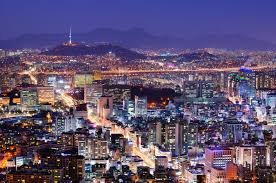- Home
- About Us
- Tel : +91 33 4022 9591
SeoulView all the popular packagesOffers
2 Popular Packege(s)
Area 605.2 Square Kilometers
Population 10.01 Million
Winter Temperature -2.5 C
Summer Temperature 25 C
Best Time To Visit The best times to visit Seoul are from March to May and from September to November, when the weather is mild (average daily high temperatures stay below the mid-70s) and travel expenses are low.
By Air

Flights operated by major airlines departing from India arrive at Incheon International Airport or Gimpo International Airport. Seoul is served by 2 international airports.
Gyeongbokgung
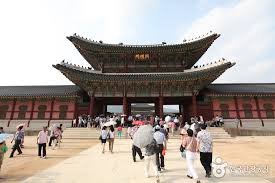
Gyeongbokgung, also known as Gyeongbokgung Palace or Gyeongbok Palace, was the main royal palace of the Joseon dynasty. Built in 1395, it is located in northern Seoul, South Korea.
Changdeokgung
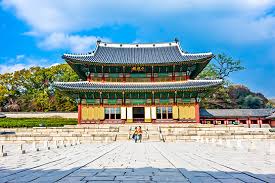
Changdeokgung, also known as Changdeokgung Palace or Changdeok Palace, is set within a large park in Jongno-gu, Seoul, South Korea. It is one of the "Five Grand Palaces" built by the kings of the Joseon Dynasty.
N Seoul Tower
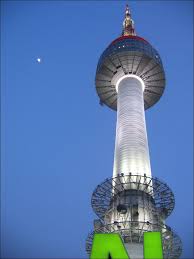
The N Seoul Tower, officially the YTN Seoul Tower and commonly known as the Namsan Tower or Seoul Tower, is a communication and observation tower located on Namsan Mountain in central Seoul, South Korea. At 236m, it marks the highest point in Seoul.
Lotte World
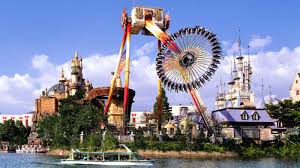
Lotte World is a major recreation complex in Seoul, South Korea. It consists of the world's largest indoor theme park which is open all year around, an outdoor amusement park called "Magic Island".
War Memorial of Korea

Building in Seoul, South Korea
War Memorial of Korea is located in Yongsan-dong, Yongsan-gu, Seoul, South Korea. It opened in 1994 on the former site of the army headquarters to exhibit and memorialize the military history of Korea.
Bukhansan

Bukhansan, or Bukhan Mountain,is a mountain on the northern periphery of Seoul, South Korea.There are three major peaks, Baegundae 836.5 meters, Insubong 810.5 meters, Mangyeongdae 787.0 meters.
Heunginjimun
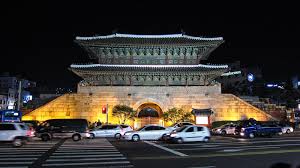
Heunginjimun, literally "Gate of Rising Benevolence" or more commonly known as Dongdaemun, is one of The Eight Gates of Seoul in the Fortress Wall of Seoul, a prominent landmark in central Seoul, South Korea.
Overview
It only takes one quick look to see that Seoul is one giant shopping mall. Outside its grand palaces and hanok villages and in between cafes (and mind you, there are countless of them), fashion shops tempt passersby with its endless barrage of apparel, accessories, and souvenirs. While you can find them almost everywhere, tourists flock in many of the cityâs most frequented shopping streets and districts. Here are eight of them.
MYEUNGDONG
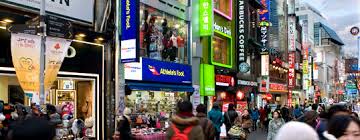
Seoulâs premier shopping destination, Myeungdong (or Myeung-dong) boasts a wide range of shops from the more reachable brands (the familiar Forever 21 and H&M) to designer labels. The place covers the area from Myeongdong Subway Station to Lotte Department Store (Euljiro). In between, several department stores rise, including Myeong-dong Migliore, M Plaza, Shinsegae Department Store, and Noon Square. If you have a not-so-deep to bottomless pockets, this is your best bet because many of these carry midrange and premium brands.
DONGDAEMUN MARKET
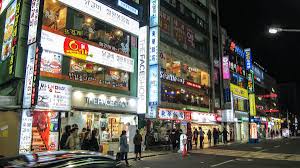
Not too far from Myeung-dong lies Dongdaemun Market, the cityâs shopping mecca. Here youâll find everything fashion: from the trendiest fabrics to bridal wear. Many distributors from all over Korea come here to buy wholesale. Those street stalls you see in the streets, they get their products from here. But retail is absolutely alive too. And thriving. Many up and coming designers launch their creations here.
NAMDAEMUN MARKET
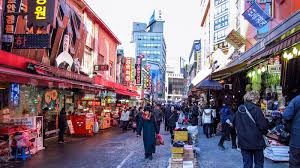
Built in 1414, Namdaemun Market is the oldest traditional market in Korea. But thatâs not its only claim to fame. It is also the largest, covering an area of over 66,000 sq. m. and housing almost 10,200 stores. Its 400-year history alone adds an air of charm around it, but most visitors come not for a lesson but a look at its wide, wide range of products. Clothes, kitchenware, and accessories dominate the site, but electronics and eyeglasses are also a common sight.
GWANGJANG MARKET
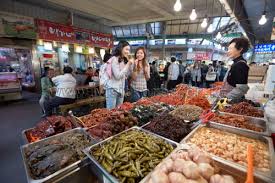
The atmosphere at Gwangjang is so different from Dongdaemun and Namdaemun. While it is not as frequented by tourists, Gwangjang is a favorite among locals looking for silk and custom-made hanbok. The market takes a different form at night when food stalls open and patrons come flooding into the building. Sealed traditional korean food products are also available for those wanting to take some home.
Balwoo Gongyang
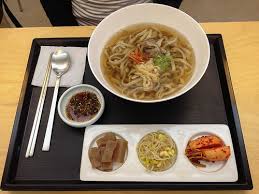
Reserve three days in advance for the delicate temple-style cuisine served here. Take your time to fully savour the subtle flavours and different textures of the vegetarian dishes which range from rice porridge and delicate salads to dumplings and fried shitake mushrooms and mugwort in a sweet and sour sauce.
Koong
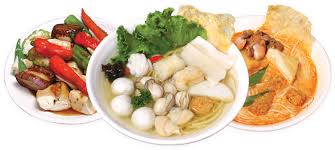
Koongâs traditional Kaeseong-style dumplings are legendary and more than a mouthful. Only order one portion, unless you're super hungry, or enjoy them in a flavourful soup along with chewy balls of rice cake.
Tongin Market Box Lunch Cafe
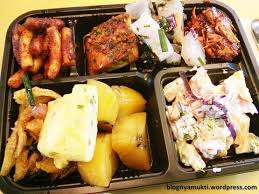
For a fun lunch, buy 10 brass coins (₩5000) at the cafe about halfway along this old-school covered market. You'll be given a plastic tray with which you can then go shopping in the market. Exchange your coins for dishes such as savoury pancakes, gimbap (seaweed covered rice rolls) and tteokbokki (spicy rice-cake stew).
Jyoti Restaurant Chungmuro Myeongdong
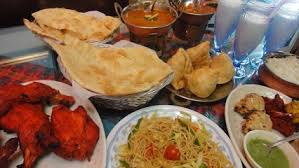
jyoti is the perfect place for Indian and Nepali cuisine. "Jyoti" means simply a "Light". We proudly offer finest Indian vegetarian and non vegetarian cuisine.

